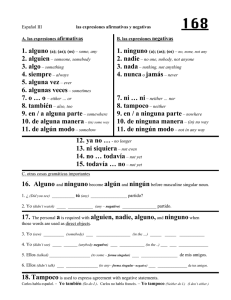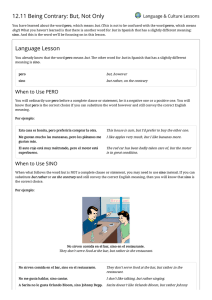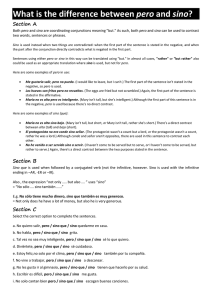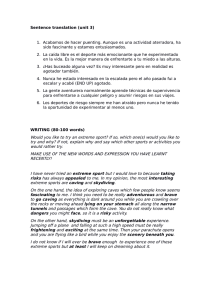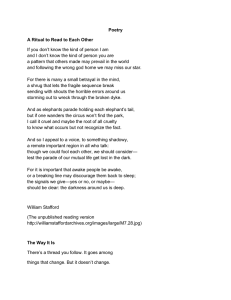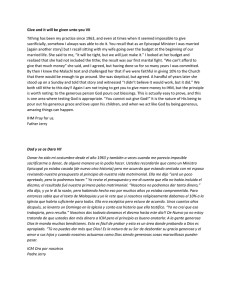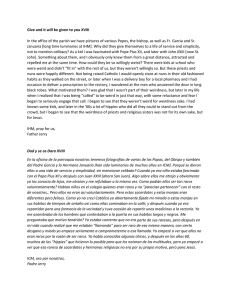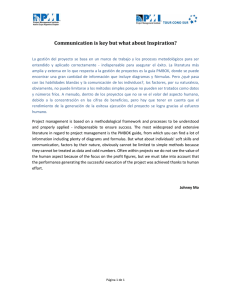HS4 – PERO VS. SINO VS. SINO QUE
Anuncio
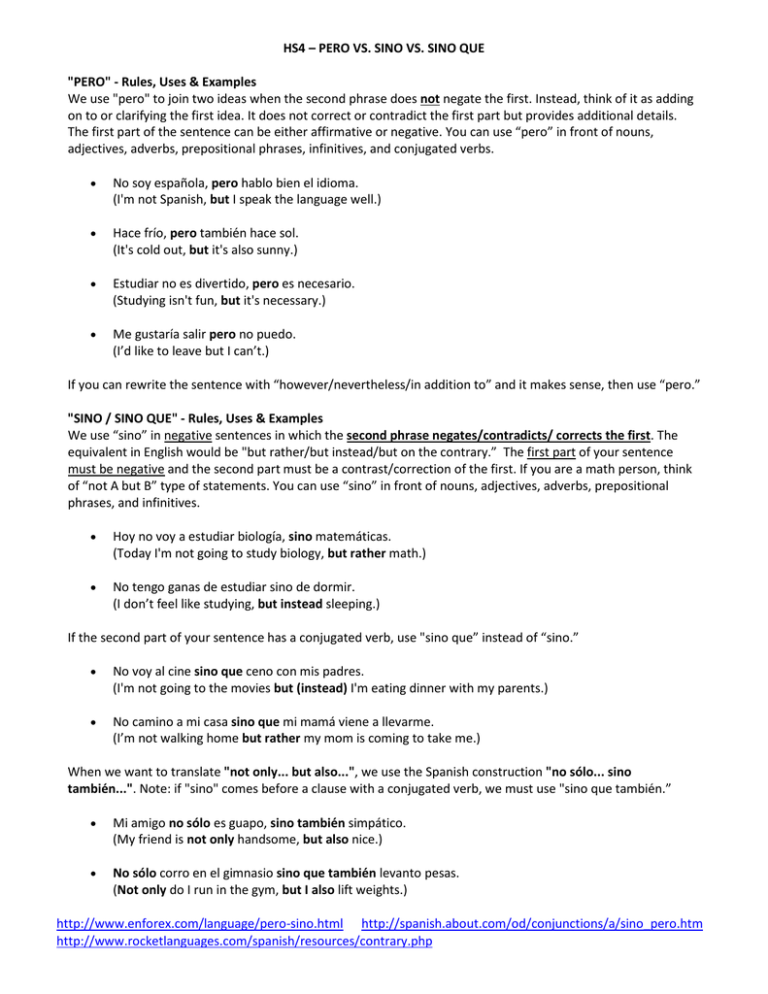
HS4 – PERO VS. SINO VS. SINO QUE "PERO" - Rules, Uses & Examples We use "pero" to join two ideas when the second phrase does not negate the first. Instead, think of it as adding on to or clarifying the first idea. It does not correct or contradict the first part but provides additional details. The first part of the sentence can be either affirmative or negative. You can use “pero” in front of nouns, adjectives, adverbs, prepositional phrases, infinitives, and conjugated verbs. • No soy española, pero hablo bien el idioma. (I'm not Spanish, but I speak the language well.) • Hace frío, pero también hace sol. (It's cold out, but it's also sunny.) • Estudiar no es divertido, pero es necesario. (Studying isn't fun, but it's necessary.) • Me gustaría salir pero no puedo. (I’d like to leave but I can’t.) If you can rewrite the sentence with “however/nevertheless/in addition to” and it makes sense, then use “pero.” "SINO / SINO QUE" - Rules, Uses & Examples We use “sino” in negative sentences in which the second phrase negates/contradicts/ corrects the first. The equivalent in English would be "but rather/but instead/but on the contrary.” The first part of your sentence must be negative and the second part must be a contrast/correction of the first. If you are a math person, think of “not A but B” type of statements. You can use “sino” in front of nouns, adjectives, adverbs, prepositional phrases, and infinitives. • Hoy no voy a estudiar biología, sino matemáticas. (Today I'm not going to study biology, but rather math.) • No tengo ganas de estudiar sino de dormir. (I don’t feel like studying, but instead sleeping.) If the second part of your sentence has a conjugated verb, use "sino que” instead of “sino.” • No voy al cine sino que ceno con mis padres. (I'm not going to the movies but (instead) I'm eating dinner with my parents.) • No camino a mi casa sino que mi mamá viene a llevarme. (I’m not walking home but rather my mom is coming to take me.) When we want to translate "not only... but also...", we use the Spanish construction "no sólo... sino también...". Note: if "sino" comes before a clause with a conjugated verb, we must use "sino que también.” • Mi amigo no sólo es guapo, sino también simpático. (My friend is not only handsome, but also nice.) • No sólo corro en el gimnasio sino que también levanto pesas. (Not only do I run in the gym, but I also lift weights.) http://www.enforex.com/language/pero-sino.html http://spanish.about.com/od/conjunctions/a/sino_pero.htm http://www.rocketlanguages.com/spanish/resources/contrary.php
